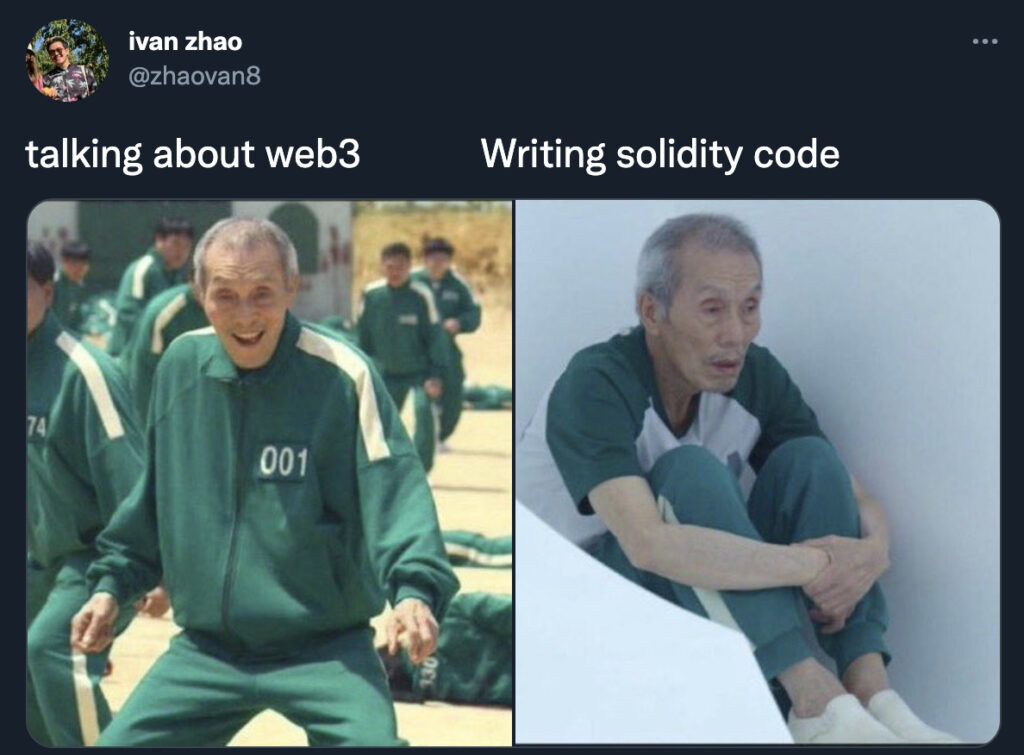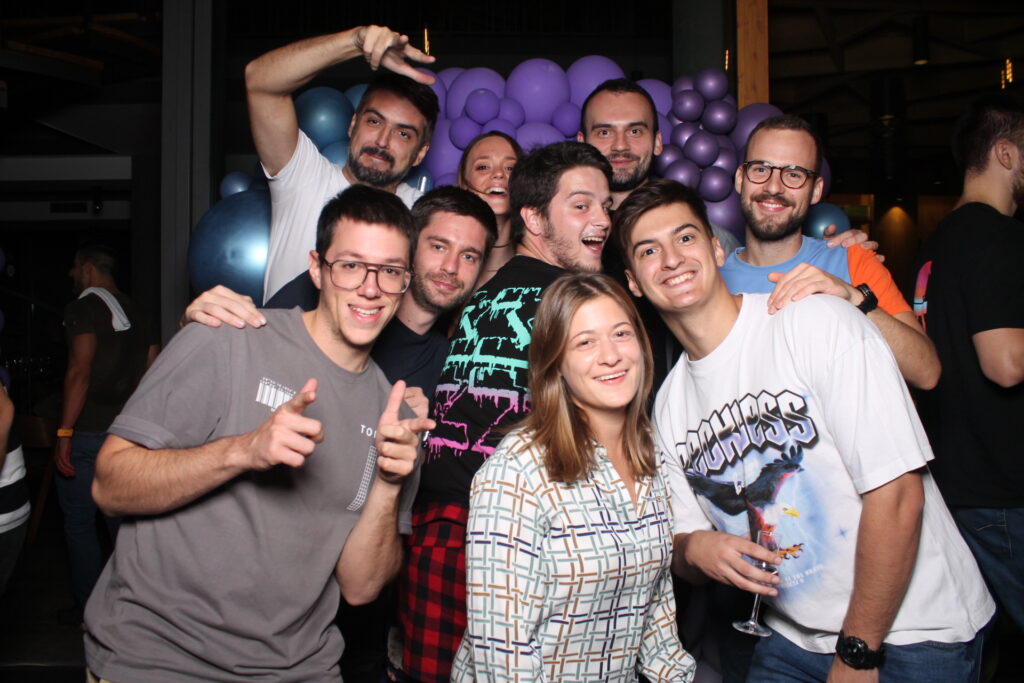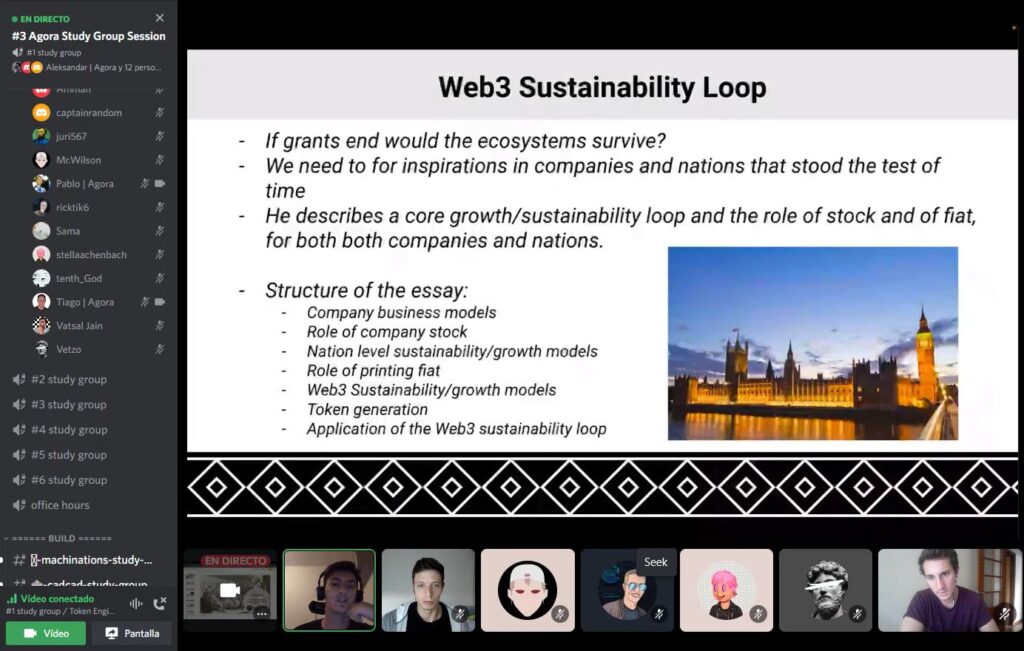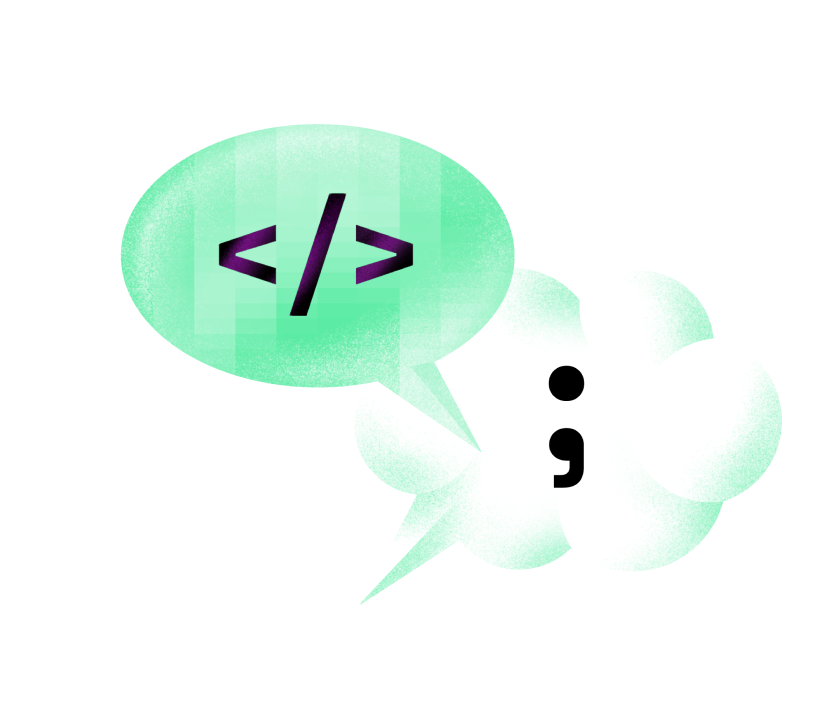Dare to wonder and make wonders?
Drop us a message.
So far, we only wrote about serious topics. Why not write something "light" this time? A couple of days ago, it was a year since I joined 3327 - a Web3 R&D and transitioned into Web3. This year has been one of the most exciting years in my career, so I am writing a short review about my transition and how we are tackling research and innovation in this team so far.
Prior to joining 3327 I worked in Data Analytics and did some Web3 research on the side. I was always interested in crypto, but more so on the market's side; however, the stuff that was "under the hood" always interested me. It all seemed well beyond my understanding. It was when I started my Master's in Computational Finance and joined the 3327 as an intern that I went deeper. The gang welcomed me with an open mind and a three-month-long Solidity, DeFi, and Web3 research Bootcamp. During this time, I learned the following:
However, the most important realization during the internship was a mindset shift from "just doing your job" to immersing and innovating in the fast-moving space that is Web3; this requires the constant following of the newest happenings in Web3, be it via Twitter, Discord, and Reddit or other sources. Tip: Use these three on a daily. If you don't know who to follow on crypto Twitter, check this thread by @alpha_pls.

Tip for a freshly minted Web3 professional:
Web3 moves fast. You cannot be up to speed with everything. Find your niche in the space and nerd out!
After the internship, I joined the team as a full-time Web3 researcher! That meant my research process needed to follow a specific methodology. My initial research papers were much more explorative as I was "warming up" to the research process; later ones aligned more with the team's mission and approach. So far, I have written papers on topics from Proofs and Tooling to Token Engineering, Mechanism design, and Cross-chain identity.

While doing regular research work, we also dedicated quite a lot of time to setting up the first installment of Web3 Technology Radar, conducting surveys, and researching the current landscape of technology in Web3 and their movement in this fast-moving space. We reviewed over 200 technologies! Two weeks ago, we presented the alpha version of the Radar at DevCon, which got great reviews. But how do we exactly approach the research process?
Pssst, check out our published papers here.
3327 approach is much more problem-oriented. Our primary focus is on solving open problems and keeping up to date with the latest technology via experimentation. That is why we do research proposal reviews weekly, discussing the reasoning behind the proposed topic and the next steps. We also do bi-weekly brainstorming sessions to try to innovate where all ideas are discussed and taken seriously, no matter how bold and ridiculous they seem at the start.
Another thing about being a researcher in 3327 is the Dojo Rules that every researcher/collaborator needs to follow. These are:
Are you interested in what those mean exactly? Check out 3327.io!
This summer, I dived head-on into the practice of Token Engineering. However, this wouldn't be possible without my team's support and expertise. Wtf is that exactly?
Token engineering is a cross-disciplinary field that draws from systems, electrical, and robotics engineering practices. It also draws from Behavioral and Ecological Economics, AI, and Optimization. Its goal is to create reliable systems that work under varying circumstances and tokenomic systems that are exploit-proof.

Interested in the topic of Token Engineering? Check this blog post out.
As I have a background in Quantitative Finance, this was a logical choice. Mathematical Modeling, Cryptoeconomics, Mechanism Design, and Research! Isn't that plenty of brain stimulation? That meant I had to focus a portion of my efforts on exploring this field and the potential for innovations in it. The knowledge gained sped up our idea validation process as we can design Web3 systems quite fast but, most importantly, validate them even quicker.
So far, I've been doing tokenomics advising, research, and mentoring aspiring Token Engineers, and I love it. Who knows what the future holds in this fast-moving space. 🙂
If you want to collaborate with 3327 or need research tips and guidance, feel free to text us via the contact form or ping us on Discord.
Another tip for an individual Web3 researcher (potential 3327 collaborator 😉 ):
Before starting a research endeavor, ask yourself:
If you are wondering what the answer to the last question is, it's Web3 Technology radar. 🙂

COMMENTS (0)